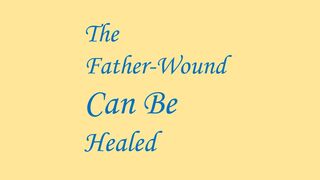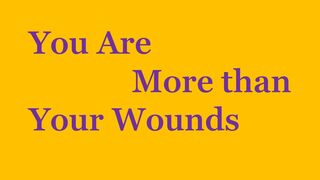Relationships
How to Heal from a "Father-Wound"
Negative interactions with one's father can damage future relationships.
Posted March 5, 2021 Reviewed by Devon Frye
Christine is a middle school teacher, a career she has had for 10 years. The students can’t stand her. She is authoritarian, bordering on rude. She demands more than respect.

When Christine was a child, her father was a demanding parent, expecting high standards of behavior and achievement in school. Christine felt that she was never quite accepted by her own father. She grew up frustrated, unfulfilled, and angry—but she did not realize that she was angry. In the classroom, she copied her father’s high standards and imposed them on each of her students. Misery begot misery, which produced even more misery.
Christine was wounded—and until she could finally realize this, she was trapped and kept many a student trapped in a room of resentment. Christine was reproducing the so-called "father-wound" by imposing it on others.
Were you hurt by your father? If so, here are three insights for you—along with 8 suggestions for beginning to heal.
- Fathers, in particular, tend to have a way of damaging confidence when power is involved. Such an emotional wound can severely damage one's self-image.
- Your father’s actions can affect your adult relationships by damaging trust, making friendships or romance difficult.
- Your father’s actions can have an effect on your spiritual or religious life, especially if your religion includes the image of God as a father.
8 Questions to Ask to Emotionally Heal from a "Father-Wound"
- Without dwelling on it, name the injustice or the pattern of injustice that you experienced. You can forgive someone for a general trend of unfairness when there are too many individual incidents to count. How hurtful was this act or series of acts by your father?
- Do you think that what you experienced with your father has negatively affected your inner world?
- A first step is to get to know your father more deeply. What was his childhood like? Was he mistreated or bullied? Was he wounded?
- Try to know more deeply your father's adolescence. Did he feel like a failure at all? How? Might that wound, being unhealed, be part of his interactions with you?
- What was his early adulthood like? Who might have been cruel to him, hardening his heart?
- Do you think that over his entire life to this point, your father has any regrets down deep inside? Shame or guilt? Feelings of inadequacy?
- Do you see that your father is more than his specific behaviors of insensitivity toward you? Can you see someone who might be more unsure than strong inside, someone who never got the chance to heal those wounds?
- Who is your father? Who are you as a wounded person who has the courage to look at your father's wounds and your own wounds? (More details can be found in Enright, 2015).

You are more than the father-wounds you have suffered. Your father is more than the wounding behaviors he gave to you. You both share being wounded. It is my hope that both of you can share in healing.
References
Enright, R. (2015) 8 keys to forgiveness. New York: Norton.


